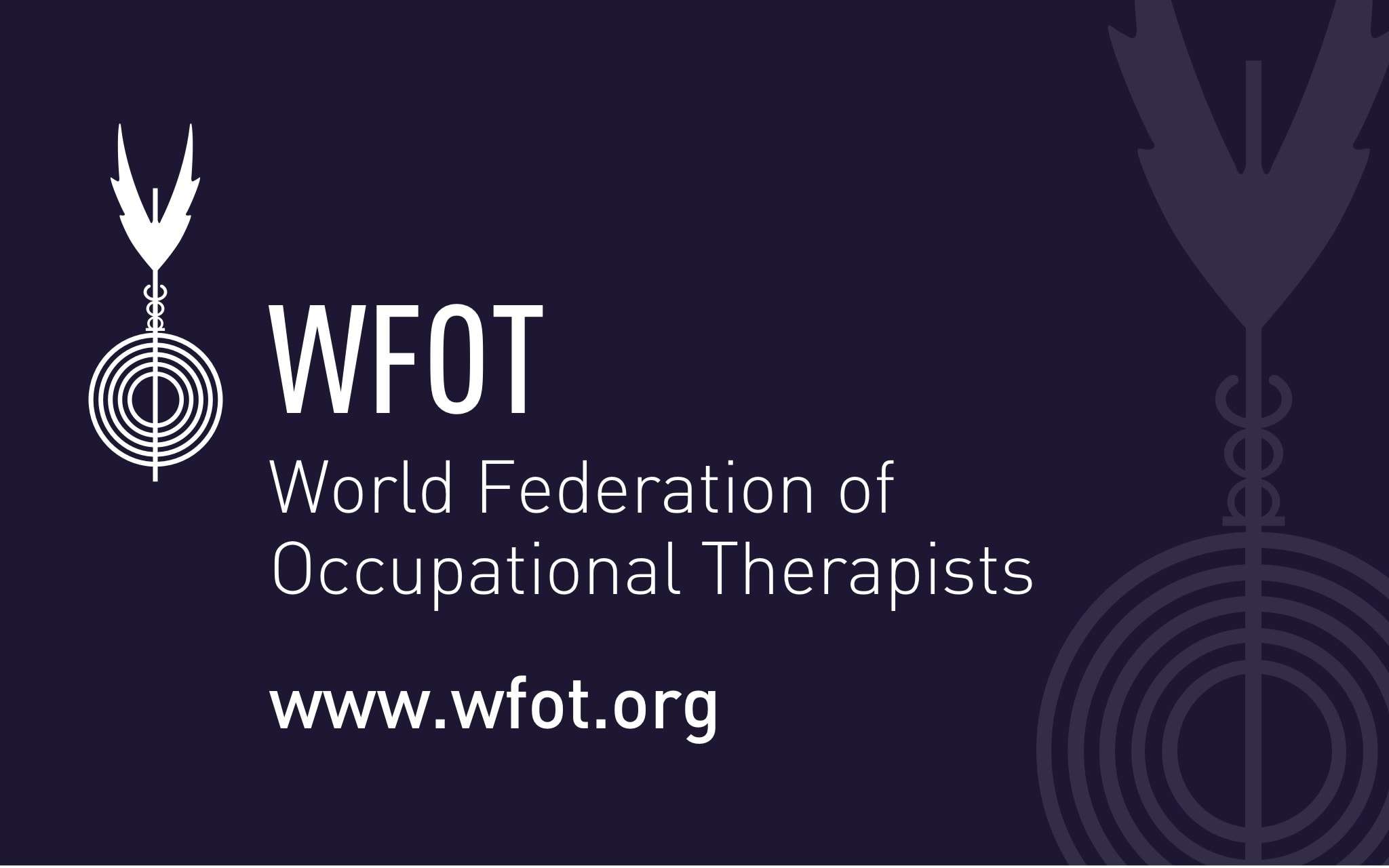In my 20 years of work as an Autism Spectrum Disorder psychologist, I have found six strategies that are most important in helping children and adults
with Autism Spectrum Disorder.
Some of these strategies are more useful for children than adults and others are more suitable to certain individuals then they are to others. But overall, these strategies form a comprehensive treatment plan that ensures the most success in helping people cope with Autism.
Accurate Diagnosis
Without exception, the most important step in addressing Autism Spectrum Disorder is obtaining an accurate diagnosis.
At first glance, some people with ASD may appear to be excessively shy, odd or awkward. They may be anxious, hyperactive, socially isolated or depressed. Anger management, procrastination, organizational problems and difficulty using information gained from one’s senses are frequent components of Autism.
Too often, these symptoms are seen in isolation, separate from each other, rather than viewed as parts of an overall condition. Therefore, ASD is never diagnosed.
There are also other medical conditions or disorders that can present symptoms that are similar to Autism Spectrum Disorder. Eliminating these other conditions is part of the diagnostic process.
An accurate diagnosis becomes the basis for building an appropriate and effective treatment program.
Social Skills Training
Children and adults with Autism Spectrum Disorder have difficulty recognizing and regulating their emotions. Their ability to empathize with others and use or respond to social cues is often compromised. The result is poor social support and isolation from others.
One of the main goals of an Autism psychologist is to provide training in understanding and learning basic socialization skills.
Interpreting body language, hand gestures, tones of voice and typical communication styles are emphasized in social skills training. Mastering the ability to sustain eye contact, attend to the subtleties of nonverbal communication and to appreciate genuine relationships with others are also important skills that are promoted.
Strength-Based Therapy
People with Autism Spectrum Disorder can be incredibly resourceful in designing strategies to negotiate their way through a world that is to them very confusing and threatening.
Autism therapy includes interventions geared towards recognizing what people have already done to successfully adapt and builds upon those self-taught skills.
This means:
- Teaching new thinking and behavioral skills to reduce problems at home, school and work
- Encouraging self-acceptance
- Teaching strategies to decrease or prevent symptoms of co-occurring conditions, such as depression, anxiety and hyperactivity.
Parent Coaching
An Autism psychologist will work with parents to help:
- Sort through the implications of an Autism Spectrum Disorder diagnosis
- Cope with feelings of anger, guilt, sadness, blame, and frustration
- Learn about and access resources for parenting children with Autism Spectrum Disorder
- Reduce uncertainty and stress in the parenting process.
Medication
Although there are no medications that specifically treat Autism Spectrum Disorder, some of the associated symptoms of ASD, such as inattention and trouble focusing, obsessive-compulsive issues, anxiety and/or depression can be alleviated by medication.
Autism psychologists do not prescribe medication but can provide referrals to psychiatrists who are familiar with Autism Spectrum Disorder and who can prescribe the appropriate medication for these symptoms.
Help is Available
The resources, support and assistance for addressing the challenges of Autism Spectrum Disorder are available for children, adults and parents.
With the aid of those resources, together with the expertise of professionals, such as an Autism psychologist, those with Autism Spectrum Disorder can overcome their problems and lead healthy, happy lives.
Psychology is the study of the human mind. This social science has made huge contributions to the understanding and treatment of autism. There are a number of ways in which psychologists can and do play a role in helping children and adults with autism. It’s important to note that psychiatry, a closely related field, also involves medical interventions (pharmaceutical treatments).
![]()
izusek / E+ / Getty Images
Psychotherapy is built around the use of the spoken word. For verbal people on the spectrum, psychotherapy can be a very useful tool for managing symptoms such as anxiety or compulsions. It can also help people with autism to better understand how their actions and reactions are perceived by others.
Applied behavior analysis is a form of behavioral therapy, which is based on traditional psychology. ABA is often used successfully to treat individuals with autism. ABA, however, is not talk therapy; rather it is a carefully structured process wherein an individual is taught skills using rewards to reinforce correct answers or preferred actions. Typically, ABA is provided by therapists with specific ABA training.
Both psychotherapy and other forms of therapeutic interventions are used to improve psychological functioning through behavioral means. These therapies can be completed individually and in groups at both schools and outpatient clinics. Children and parents can participate.
Developmental psychology is a branch of psychology that deals with child development and explores typical and atypical development, questions of nature versus nurture, and related topics. Developmental psychology is the basis for several well-known treatments for autism, including SCERTS, Floortime, and Relationship Development Intervention (RDI).
Some other areas of psychology that are often helpful for people on the spectrum and their families include:
- Drama therapy
- Play therapy
- School/educational psychology
- Family psychology
What Does a Psychologist Do For People With Autism?
Psychologists are often involved in the process of diagnosing both children and adults with autism. They may also recommend appropriate treatment programs, and/or support the process of evaluation, benchmarking and ongoing assessment.
Developmental and child psychologists work with children to help them engage with others through play, and learn skills such as joint attention (doing something WITH rather than NEAR someone else).
School psychologists may work with autistic students to help them engage with their peers, manage stress, or handle difficult interactions with bullies or general teasing. They may also work with parents and teachers to develop strategies for school success.
Psychologists work with both children and adults with autism to treat issues such as social anxiety, depression, and perseverative behavior (doing or saying the same things over and over again). Psychologists also work with individuals on the autism spectrum to help them manage self stimulation (stims), “autopsy” social interactions, understand social cues, and manage school and work relationships.
Behavioral psychologists are in high demand within the autism community. They may evaluate autistic behaviors to better understand their meaning and purpose, develop behavioral (ABA) programs to teach a wide range of skills, or help families to manage aggression and other problematic behaviors in the home.
Where Can I Find a Qualified Psychologist?
Because there is no such thing as an “autism psychologist,” there is no directory of psychologists skilled in working with children or adults with autism. To find an appropriate psychologist, parents may want to start at a local children’s hospital with an autism center or program; at a regional autism center; or in the school district. Adults with autism can do a local online search, but may be better served by connecting with autism self-advocacy organizations such as GRASP.org.
Diagnosis
Your child’s doctor will look for signs of developmental delays at regular checkups. If your child shows any symptoms of autism spectrum disorder, you’ll likely be referred to a specialist who treats children with autism spectrum disorder, such as a child psychiatrist or psychologist, pediatric neurologist, or developmental pediatrician, for an evaluation.
Because autism spectrum disorder varies widely in symptoms and severity, making a diagnosis may be difficult. There isn’t a specific medical test to determine the disorder. Instead, a specialist may:
- Observe your child and ask how your child’s social interactions, communication skills and behavior have developed and changed over time
- Give your child tests covering hearing, speech, language, developmental level, and social and behavioral issues
- Present structured social and communication interactions to your child and score the performance
- Use the criteria in the Diagnostic and Statistical Manual of Mental Disorders (DSM-5), published by the American Psychiatric Association
- Include other specialists in determining a diagnosis
- Recommend genetic testing to identify whether your child has a genetic disorder such as Rett syndrome or fragile X syndrome
Treatment
No cure exists for autism spectrum disorder, and there is no one-size-fits-all treatment. The goal of treatment is to maximize your child’s ability to function by reducing autism spectrum disorder symptoms and supporting development and learning. Early intervention during the preschool years can help your child learn critical social, communication, functional and behavioral skills.
The range of home-based and school-based treatments and interventions for autism spectrum disorder can be overwhelming, and your child’s needs may change over time. Your health care provider can recommend options and help identify resources in your area.
If your child is diagnosed with autism spectrum disorder, talk to experts about creating a treatment strategy and build a team of professionals to meet your child’s needs.
Treatment options may include:
- Behavior and communication therapies. Many programs address the range of social, language and behavioral difficulties associated with autism spectrum disorder. Some programs focus on reducing problem behaviors and teaching new skills. Other programs focus on teaching children how to act in social situations or communicate better with others. Applied behavior analysis (ABA) can help children learn new skills and generalize these skills to multiple situations through a reward-based motivation system.
- Educational therapies. Children with autism spectrum disorder often respond well to highly structured educational programs. Successful programs typically include a team of specialists and a variety of activities to improve social skills, communication and behavior. Preschool children who receive intensive, individualized behavioral interventions often show good progress.
- Family therapies. Parents and other family members can learn how to play and interact with their children in ways that promote social interaction skills, manage problem behaviors, and teach daily living skills and communication.
- Other therapies. Depending on your child’s needs, speech therapy to improve communication skills, occupational therapy to teach activities of daily living, and physical therapy to improve movement and balance may be beneficial. A psychologist can recommend ways to address problem behavior.
- Medications. No medication can improve the core signs of autism spectrum disorder, but specific medications can help control symptoms. For example, certain medications may be prescribed if your child is hyperactive; antipsychotic drugs are sometimes used to treat severe behavioral problems; and antidepressants may be prescribed for anxiety. Keep all health care providers updated on any medications or supplements your child is taking. Some medications and supplements can interact, causing dangerous side effects.
Managing other medical and mental health conditions
In addition to autism spectrum disorder, children, teens and adults can also experience:
- Medical health issues. Children with autism spectrum disorder may also have medical issues, such as epilepsy, sleep disorders, limited food preferences or stomach problems. Ask your child’s doctor how to best manage these conditions together.
- Problems with transition to adulthood. Teens and young adults with autism spectrum disorder may have difficulty understanding body changes. Also, social situations become increasingly complex in adolescence, and there may be less tolerance for individual differences. Behavior problems may be challenging during the teen years.
- Other mental health disorders. Teens and adults with autism spectrum disorder often experience other mental health disorders, such as anxiety and depression. Your doctor, mental health professional, and community advocacy and service organizations can offer help.
Planning for the future
Children with autism spectrum disorder typically continue to learn and compensate for problems throughout life, but most will continue to require some level of support. Planning for your child’s future opportunities, such as employment, college, living situation, independence and the services required for support can make this process smoother.
More Information
- Cognitive behavioral therapy
Clinical trials
Explore Mayo Clinic studies testing new treatments, interventions and tests as a means to prevent, detect, treat or manage this condition.
Alternative medicine
Because autism spectrum disorder can’t be cured, many parents seek alternative or complementary therapies, but these treatments have little or no research to show that they’re effective. You could, unintentionally, reinforce negative behaviors. And some alternative treatments are potentially dangerous.
Talk with your child’s doctor about the scientific evidence of any therapy that you’re considering for your child.
Examples of complementary and alternative therapies that may offer some benefit when used in combination with evidence-based treatments include:
- Creative therapies. Some parents choose to supplement educational and medical intervention with art therapy or music therapy, which focuses on reducing a child’s sensitivity to touch or sound. These therapies may offer some benefit when used along with other treatments.
- Sensory-based therapies. These therapies are based on the unproven theory that people with autism spectrum disorder have a sensory processing disorder that causes problems tolerating or processing sensory information, such as touch, balance and hearing. Therapists use brushes, squeeze toys, trampolines and other materials to stimulate these senses. Research has not shown these therapies to be effective, but it’s possible they may offer some benefit when used along with other treatments.
- Massage. While massage may be relaxing, there isn’t enough evidence to determine if it improves symptoms of autism spectrum disorder.
- Pet or horse therapy. Pets can provide companionship and recreation, but more research is needed to determine whether interaction with animals improves symptoms of autism spectrum disorder.
Some complementary and alternative therapies may not be harmful, but there’s no evidence that they’re helpful. Some may also include significant financial cost and be difficult to implement. Examples of these therapies include:
- Special diets. There’s no evidence that special diets are an effective treatment for autism spectrum disorder. And for growing children, restrictive diets can lead to nutritional deficiencies. If you decide to pursue a restrictive diet, work with a registered dietitian to create an appropriate meal plan for your child.
- Vitamin supplements and probiotics. Although not harmful when used in normal amounts, there is no evidence they are beneficial for autism spectrum disorder symptoms, and supplements can be expensive. Talk to your doctor about vitamins and other supplements and the appropriate dosage for your child.
- Acupuncture. This therapy has been used with the goal of improving autism spectrum disorder symptoms, but the effectiveness of acupuncture is not supported by research.
Some complementary and alternative treatments do not have evidence that they are beneficial and they’re potentially dangerous. Examples of complementary and alternative treatments that are not recommended for autism spectrum disorder include:
- Chelation therapy. This treatment is said to remove mercury and other heavy metals from the body, but there’s no known link with autism spectrum disorder. Chelation therapy for autism spectrum disorder is not supported by research evidence and can be very dangerous. In some cases, children treated with chelation therapy have died.
- Hyperbaric oxygen treatments. Hyperbaric oxygen is a treatment that involves breathing oxygen inside a pressurized chamber. This treatment has not been shown to be effective in treating autism spectrum disorder symptoms and is not approved by the Food and Drug Administration (FDA) for this use.
- Intravenous immunoglobulin (IVIG) infusions. There is no evidence that using IVIG infusions improves autism spectrum disorder, and the FDA has not approved immunoglobulin products for this use.
Coping and support
Raising a child with autism spectrum disorder can be physically exhausting and emotionally draining. These suggestions may help:
- Find a team of trusted professionals. A team, coordinated by your doctor, may include social workers, teachers, therapists, and a case manager or service coordinator. These professionals can help identify and evaluate the resources in your area and explain financial services and state and federal programs for children and adults with disabilities.
- Keep records of visits with service providers. Your child may have visits, evaluations and meetings with many people involved in his or her care. Keep an organized file of these meetings and reports to help you decide about treatment options and monitor progress.
- Learn about the disorder. There are many myths and misconceptions about autism spectrum disorder. Learning the truth can help you better understand your child and his or her attempts to communicate.
- Take time for yourself and other family members. Caring for a child with autism spectrum disorder can put stress on your personal relationships and your family. To avoid burnout, take time out to relax, exercise or enjoy your favorite activities. Try to schedule one-on-one time with your other children and plan date nights with your spouse or partner — even if it’s just watching a movie together after the children go to bed.
- Seek out other families of children with autism spectrum disorder. Other families struggling with the challenges of autism spectrum disorder may have useful advice. Some communities have support groups for parents and siblings of children with the disorder.
- Ask your doctor about new technologies and therapies. Researchers continue to explore new approaches to help children with autism spectrum disorder. See the Centers for Disease Control and Prevention website on autism spectrum disorders for helpful materials and links to resources.
Preparing for your appointment
Your child’s health care provider will look for developmental problems at regular checkups. Mention any concerns you have during your appointment. If your child shows any signs of autism spectrum disorder, you’ll likely be referred to a specialist who treats children with the disorder for an evaluation.
Bring a family member or friend with you to the appointment, if possible, to help you remember information and for emotional support.
Here’s some information to help you prepare for your appointment.
What you can do
Before your child’s appointment, make a list of:
- Any medications, including vitamins, herbs and over-the-counter medicines that your child is taking, and their dosages.
- Any concerns you have about your child’s development and behavior.
- When your child began talking and reaching developmental milestones. If your child has siblings, also share information about when they reached their milestones.
- A description of how your child plays and interacts with other children, siblings and parents.
- Questions to ask your child’s doctor to make the most of your time.
In addition, it may be helpful to bring:
- Notes of any observations from other adults and caregivers, such as babysitters, relatives and teachers. If your child has been evaluated by other health care professionals or an early intervention or school program, bring this assessment.
- A record of developmental milestones for your child, such as a baby book or baby calendar, if you have one.
- A video of your child’s unusual behaviors or movements, if you have one.
Questions to ask your child’s doctor may include:
- Why do you think my child does (or doesn’t) have autism spectrum disorder?
- Is there a way to confirm the diagnosis?
- If my child does have autism spectrum disorder, is there a way to tell how severe it is?
- What changes can I expect to see in my child over time?
- What kind of special therapies or care do children with autism spectrum disorder need?
- How much and what kinds of regular medical care will my child need?
- What kind of support is available to families of children with autism spectrum disorder?
- How can I learn more about autism spectrum disorder?
Don’t hesitate to ask other questions during your appointment.
What to expect from your child’s doctor
Your child’s doctor is likely to ask you a number of questions. Be ready to answer them to reserve time to go over any points you want to focus on. Your doctor may ask:
- What specific behaviors prompted your visit today?
- When did you first notice these signs in your child? Have others noticed signs?
- Have these behaviors been continuous or occasional?
- Does your child have any other symptoms that might seem unrelated to autism spectrum disorder, such as stomach problems?
- Does anything seem to improve your child’s symptoms?
- What, if anything, appears to worsen symptoms?
- When did your child first crawl? Walk? Say his or her first word?
- What are some of your child’s favorite activities?
- How does your child interact with you, siblings and other children? Does your child show interest in others, make eye contact, smile or want to play with others?
- Does your child have a family history of autism spectrum disorder, language delay, Rett syndrome, obsessive-compulsive disorder, or anxiety or other mood disorders?
- What is your child’s education plan? What services does he or she receive through school?



